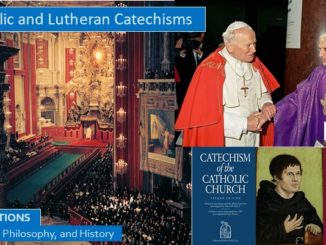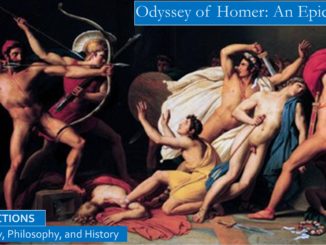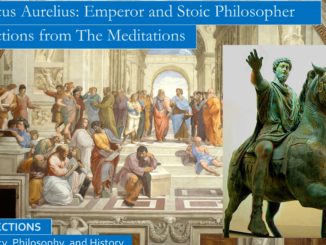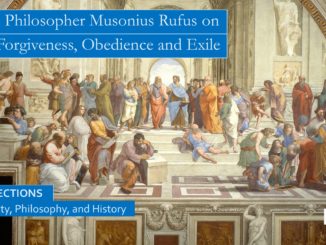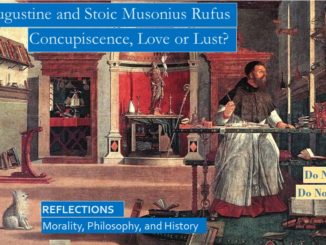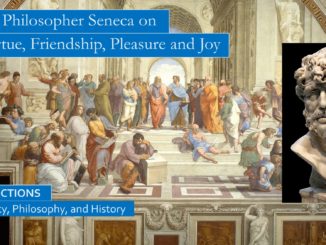
Seneca, Moral Epistles, Blog 4, Stoic Concepts of Virtue and the Good
What distinguishes the virtuous soul? Seneca says It is “the soul that penetrates the whole world and directs it contemplating gaze upon all its Phenomena, paying strict attention to thoughts and actions, rising above both hardships and flatteries, yielding neither to poverty nor to fortune, rising above all tribulations and blessings, absolutely beautiful, perfectly equipped with grace and strength, unruffled, never dismayed, unmoved by violence, neither exalted or depressed by chance events – a soul like this is virtue itself.” Virtue is not like the house built on sand that is swept away by the first storm, virtue is the house built on the rocks, the house that stands firm against the waves and the storms that crash against the rocks, this house is never moved. Seneca lists the other virtues, “tranquility, simplicity, generosity, constancy, equanimity, endurance.” […]

